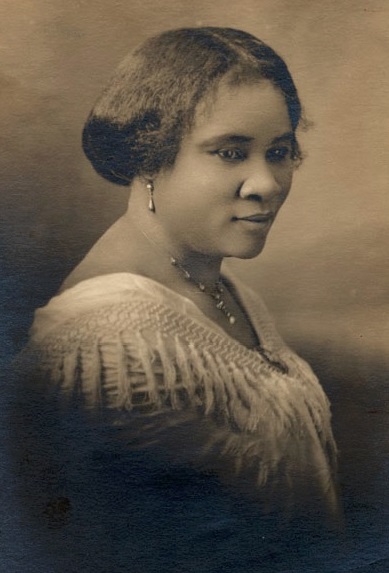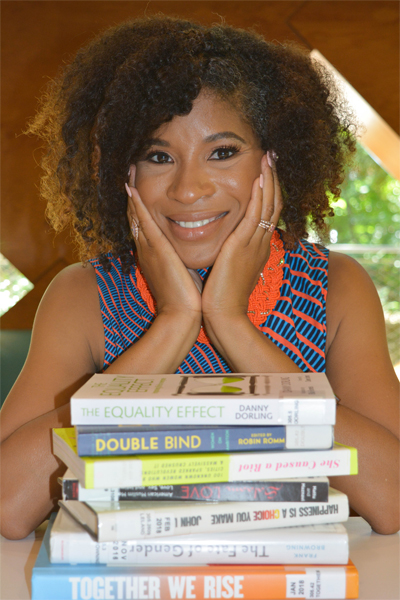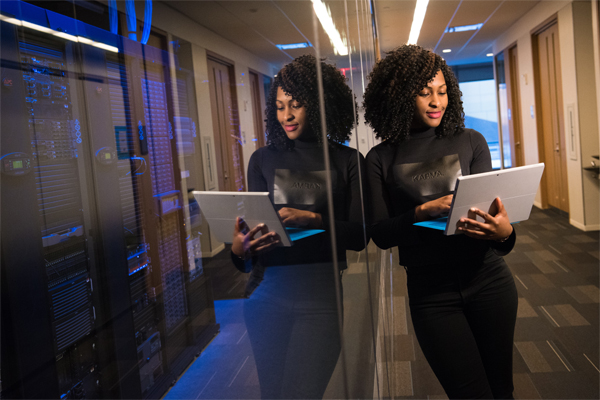In the first of our new guest column series dedicated to Women’s History Month, AstraZeneca’s diversity champion Dawn Christian explores how Black women entrepreneurs in the US are changing the narrative. “Despite the continued challenges they face, their perseverance, visionary spirit and fearless attitudes are helping to create successful business ventures and legacies,” she notes.
In recent weeks and months, you’ve probably noticed more articles and programmes on the success of Black female entrepreneurs. Renae Bluitt’s recent documentary She Did That, which takes an intimate look at several Black female entrepreneurs, explores and confirms this trend.
Black women-owned businesses grew by a whopping 164%, nearly three times the rate of all women-owned businesses (58%), according to the 2018 State of Women-Owned Business Report by American Express. In fact, according to a recent Forbes article, ‘Black women are the only racial or ethnic group with more business owners than their male peers’.
Both the documentary and the Forbes article attribute this uptick in Black female businesses to ‘inadequate treatment’ and ‘lack of opportunities’ in the traditional corporate setting. Black women have had enough! As a result, they have responded by setting up on their own.
PLAYING CATCH-UP
Despite the uptick in women-owned businesses, disparities still exist. According to the Forbes, Black female businesses do not earn as much as non-Black businesses. On average, they see little more than $27,000 in sales compared to all women-owned companies, which have sales averaging $140,000. However, sales of their White-owned counterparts exceed $170,000.
Essentially, Black female entrepreneurs are still playing ‘catch-up’ because most are sole proprietorships and are challenging to scale. Despite the surge in the number of Black-owned female firms, challenges persist due to the legacy of institutionalised discrimination in the US, such as Segregation, which forbade Black people to patronise White-owned establishments. As a result of this exclusion, Black people established businesses to serve their own community. What Black women did not have, they created. Just like in the days of Segregation, they are not allowing today’s inequalities to hold them back either.
SHE DID THAT & MORE
Madam CJ Walker, the first African-American female millionaire, during the late 1800s, didn’t let anything hold her back from becoming a success. The successful entrepreneur and Civil Rights activist carved out her own space and made her millions by creating products for Black women.

Image credit: Scurlock Studio (Washington, DC)
Barriers to entry today, however, are resonant and reflective of the era of Segregation. Although Jim Crow Laws have been outlawed, socio-economic barriers to entry continue to exist. Nevetheless, the growth in Black female ownership and the stories captured in the She Did That documentary ignite a new narrative about Black women in business.
FEARLESS VISIONARIES
In short, both the documentary – and history – reveals that Black women are very resourceful and have been figuring out how to get things done for quite some time. Bluitt’s documentary showcases entrepreneurs like Melissa Butler, who Like Madam CJ Walker, saw a gap in the beauty industry and responded by launching beauty brand, The Lip Bar, which is now sold at mega-retailer Target in the US.
Like Butler, there are many more stories of Black females who are filling the gaps and finding a space to belong in business. Their perseverance, visionary spirit, fearless and bold attitudes have helped them to create legacies, and yes – achieve a sense of belonging in business too.
SELF-MADE WOMEN
Thanks to these women, future generations of Black women can take note and bust through the guardrails. In fact, despite the challenges that exist, there’s probably never been a better time to be a Black female with entrepreneurial aspirations or wanting to strike out on your own.
With more online resources, from organisations such as the US Chamber of Commerce and/or certification programmes, such as those designed for Women-Owned or Minority-Owned Business – there is now more support than there was for our predecessors. Of course, it’s still not easy. Challenges will still need to be overcome, but there is a lot more help out there in terms of training and development, and certification to help Black women get ahead.
As we look back on Black History Month and lean into Women’s History Month, let’s stand poised to find ways to be fearless and fill in the gaps. The era of Segregation has taught all of us that we are capable even when the odds stand against us. Entrepreneurship, ownership and forming our own spaces is what Black females in America have had to do since day one. However, now we can create opportunity out of the obstacle called exclusion. We don’t have to wait to be accepted anymore, but can instead carve out our own space to belong, just like many of the ‘self-made’ women who came before us.

AUTHOR BIOGRAPHY
Dawn E Christian is Associate Director of Learning Strategy at AstraZeneca. She is also an IDEAS (Inclusion, Diversity, Equity, Access and Social Consciousness) champion, practitioner, speaker and podcast contributor. Inspired by two decades of corporate experience, she is also the creator of social consciousness brand: I Belong Here.








































